Is your child starting big school soon? If so, you might be wondering if they’re ready. The best way to determine this is through a kindergarten readiness checklist.
We’ve compiled a checklist that will help you understand the specific skills your child needs to have when entering kindergarten. This is a great way to check things off and see which areas your child can work on.
In addition, we’ve added a few tips to help if your child is having trouble with certain skills. After reading this guide, you and your child should be much more confident and prepared for the exciting new school journey ahead!
The Importance Of A Holistic Approach
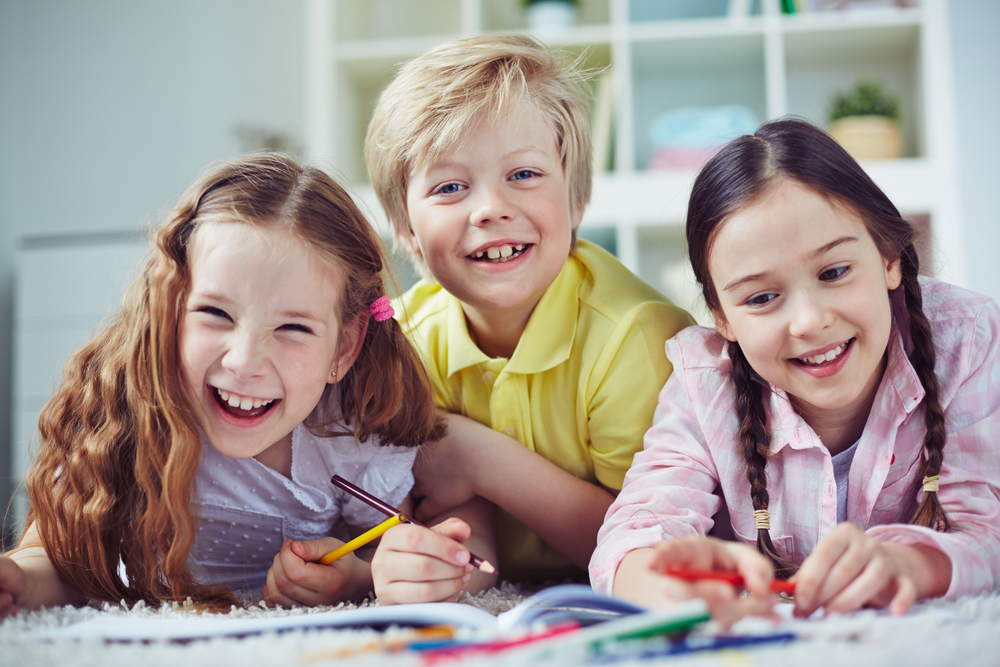
When most people think about a kindergarten readiness checklist, they assume it will be a long list filled with the academic skills children will need to master before they can thrive in school.
However, as you’ll see from our list below, kindergarten isn’t all about academics. There are other important skills, too. For example, kids will need to know how to show respect to their teacher and peers, follow instructions, play peacefully with others, and share.
Later, we’ll share some practical tips on effective ways to teach the skills required in kindergarten, but for now, let’s get to that list you came here for.
The Kindergarten Readiness Checklist
The following are skills your child will need prior to entering kindergarten:
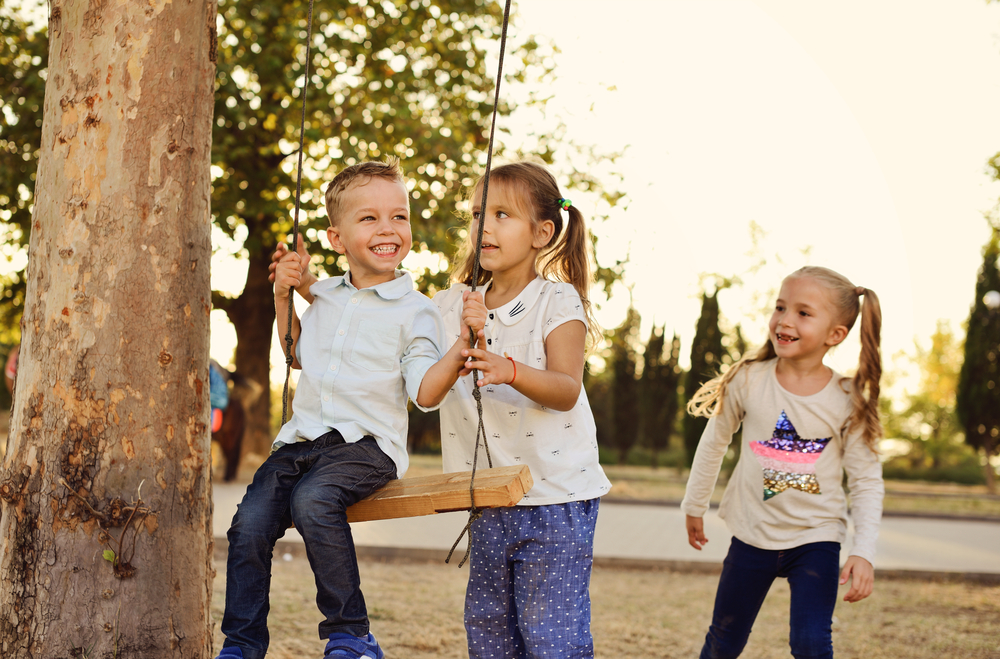
1) Language
Language is an important skill at any age! Here’s what you can expect from your almost-kindergartener.
- Is able to start and join in conversations
- Can retell a simple story
- Can recognize words that rhyme
- Is familiar with popular nursery rhymes and can recite them
- Speaks clearly in simple sentences
- Able to use words to communicate their needs and wants
- Can confidently follow directions (specifically, two-step directions)
- Can recognize and point out common words and signs (e.g., stop signs, traffic lights, the logo of a popular restaurant you commonly go to, etc.)
- Curious about how things work and may ask questions for more details
- Can make comparisons between objects and their relationship to one another (e.g., bigger, under, on top, etc.)
2) Reading Readiness
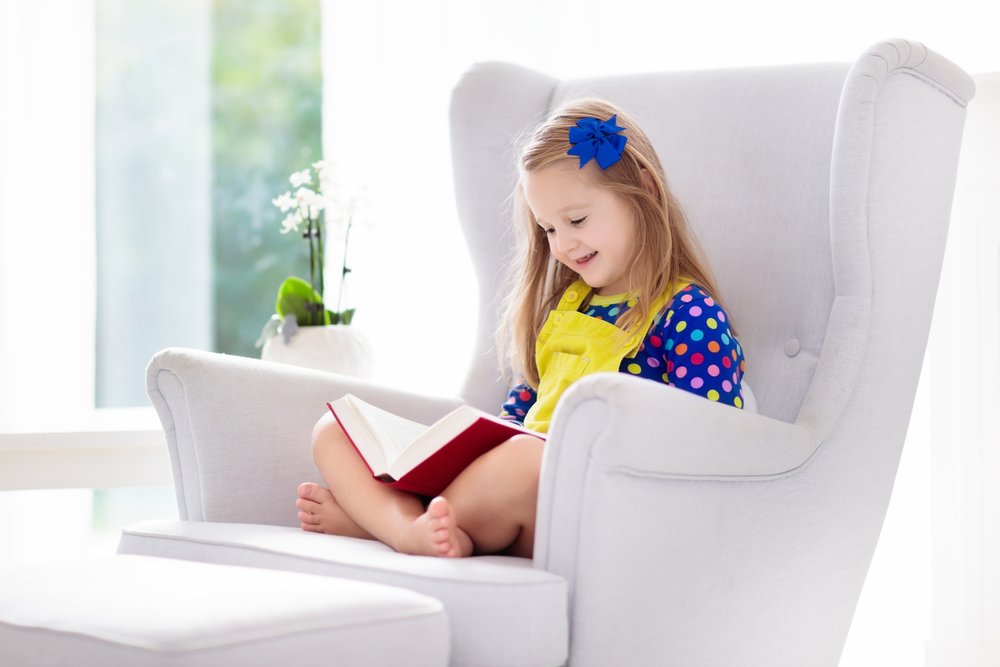
Reading is perhaps one of the most crucial parts of a child’s education. Below are the milestones you can look for at this age.
- Recognizes own name in print
- Comfortable with holding a book correctly and paging through it
- Demonstrates interest in reading and listening to stories
- Able to maintain interest in a short story
- Can name and recognize some uppercase and lowercase letters
3) Mathematics
- Can comfortably count from one to 10 (or higher)
- Able to identify at least three common shapes (this often includes circle, triangle, and square)
- Can match a group of five or fewer items to a number (e.g., “She had three eggs.”)
- Familiar with the concept of “adding” and “taking from” items (e.g., “I had three bananas. Mommy ate one. I now have two.”)
- Comfortable with the concept of “less than” and “more than”
- Able to arrange at least three items in order (e.g., from smallest to the biggest or the other way around)
- Can name the colors in a box of eight crayons
4) Gross Motor Skills
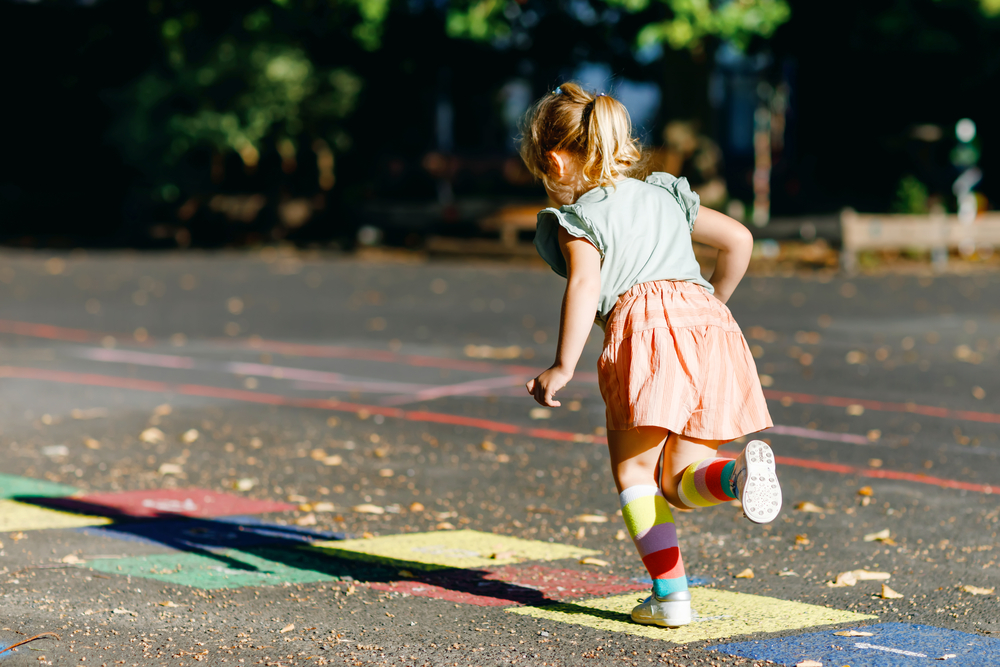
Kids have lots of opportunities to run and play in kindergarten! That’s why gross motor skills are an important part of our kindergarten readiness checklist.
- Can run
- Can run, jump, hop (with one and two feet)
- Can bounce a ball and attempt to catch it
- Able to throw and kick a ball
- Able to climb reasonably sized stairs
- Can ride a tricycle
5) Fine Motor Skills
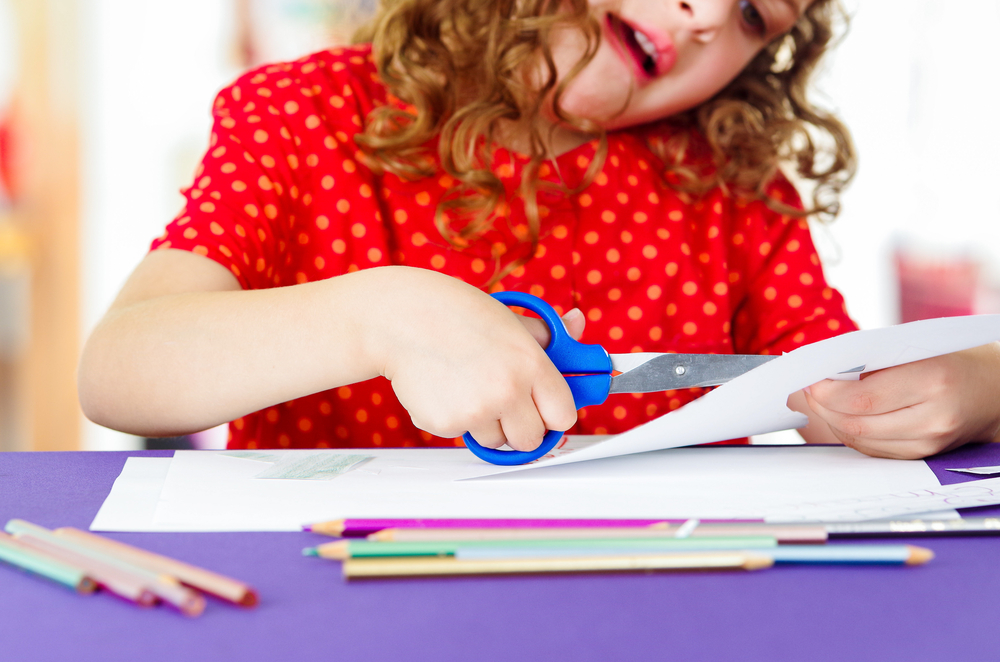
- Can use a pair of safety scissors to cut
- Able to put together a simple puzzle
- Can correctly grip a pen, pencil, marker, or crayon
- Able to copy basic shapes, such as a circle, triangle, a straight line, etc. (These may not be perfectly drawn. However, they can keep the general shape or pattern of the basic item they are copying.)
- Can build a tower using blocks
- Attempts to tie shoelaces, zips, buttons, and buckles
6) Social And Emotional Skills
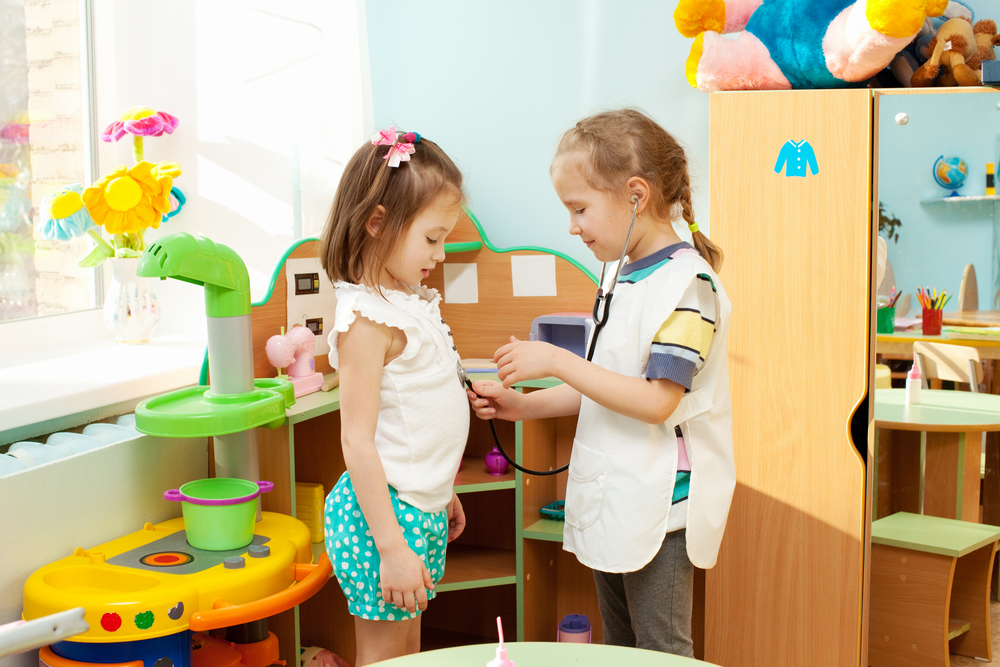
- Can peacefully separate from parents (It’s perfectly normal if they get upset. However, the child should be able to separate without getting overly worked up.)
- Can pay attention for at least five minutes without interrupting
- Comfortable using phrases like “please,” “thank you,” and “excuse me”
- Able to start and complete a simple activity
- Comfortable asking for help
- Shows respect to peers and can work peacefully with them (e.g., takes turns, shares, etc.)
- May occasionally offer to help peers and family members
- Shows respect to adults
- Can follow routines (e.g., gets up, uses the bathroom, brushes teeth, gets ready, etc.)
- Attempts to communicate thoughts and feelings through words
- Improved ability to regulate emotions
- Can participate in cleaning up duties
- Can take responsibility for their belongings (e.g., lunch box)
- Tries out new activities, and if they fail or make mistakes, willing to try again
7) Self-Care
- Has decent personal hygiene habits (e.g., washing their hands before and after eating, after using the bathroom, etc.)
- Able to use the bathroom independently
- Can get dressed on their own (however, they may still need some help with shoelaces, buttons, etc.)
What If My Child Is Struggling?
Every child is different and learns and grows at different rates. If your child hasn’t mastered some of the skills above, that’s OK!
But now that you have a kindergarten readiness checklist, where to from here? More specifically, if you notice your child is struggling with some skills, what can you do about it?
The first thing to keep in mind is that it’s normal for children to be strong in certain areas and a bit weaker in others. Of course, that’s the case with adults as well.
Most people like to stick to what they’re good at; however, that’s not always the best approach, especially with young children.
It’s essential that kids learn to celebrate the areas they excel in and work on those they struggle with. This will build children who are confident and comfortable taking on challenging tasks.
With that in mind, here are some things you can do after identifying your child’s challenge areas.
Carefully Select At-Home Activities
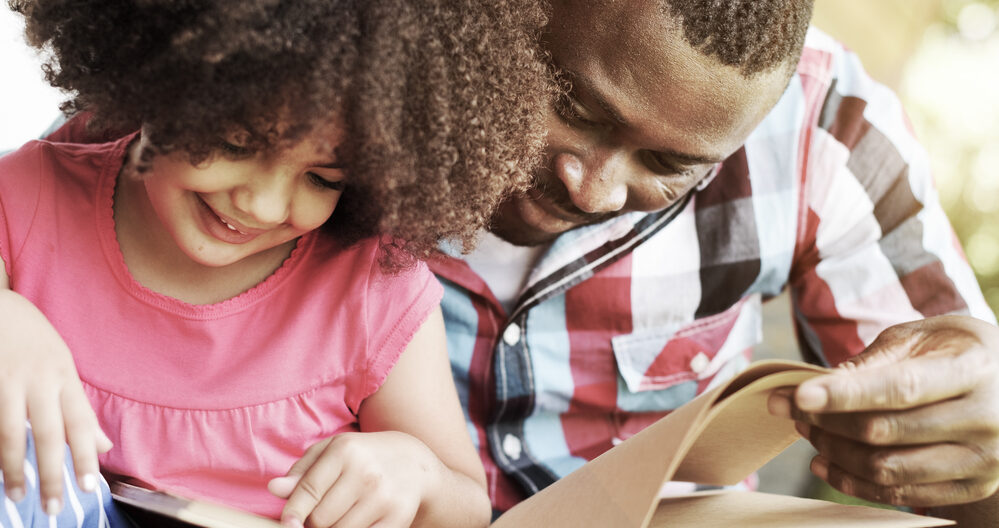
The best way for a child to acquire a new skill is to get lots of practice. So, once you’re clear on your child’s strengths and weaknesses, you can use encouraging games and activities that will help build those certain skills.
For example, if your child’s gross motor skills are lacking, you can select more field game activities from HOMER. These will get your child running, jumping, hopping, climbing, and continuing to develop their gross motor skills while also having fun.
Try HOMER Explore Kits
Our Explore Kits are perfect for children from three to six years old. These hands-on learning bundles help children continue to develop essential skills in an entertaining way.
In addition, each kit includes activities that are adjustable in difficulty to ensure they meet your child’s needs.
Talk To Their Pediatrician
As highlighted above, it’s perfectly normal for children to have strengths and weaknesses. However, if they are significantly behind their peers in certain areas, it’s a good idea to reach out to their pediatrician to see if there’s a more serious problem.
You can also speak to their teacher once school has begun. They will most likely have a couple of fun and unique activities you can try at home.
Here’s To New Beginnings!
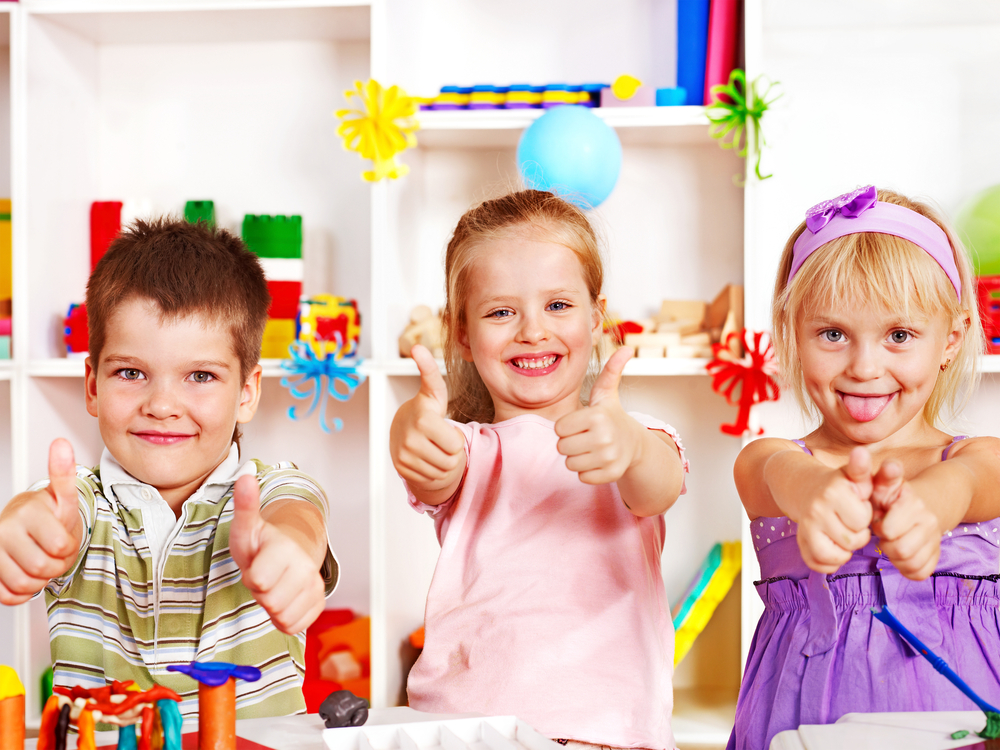
The start of kindergarten is an exciting time. And as a parent, you know how important it is that your child begins their school journey on the right foot. Part of that is ensuring that they have the necessary skills by using our kindergarten readiness checklist.
While looking at kindergarten skills, it’s essential to note that it’s not all about academics. Sure, that’s an integral part of school. However, there are many other critical skills that kids need to make it through school and thrive.
You can use our kindergarten readiness checklist to help you check off all the skills your child has developed and get clarity on the areas that may need some extra attention.
Once you’re clear on your child’s strengths and weaknesses, you can focus more on specific at-home learning games that will help them succeed.
The HOMER blog is filled with activities that can help your child develop various skills. Armed with this, your young learner will be ready to take on big school in no time!
,


